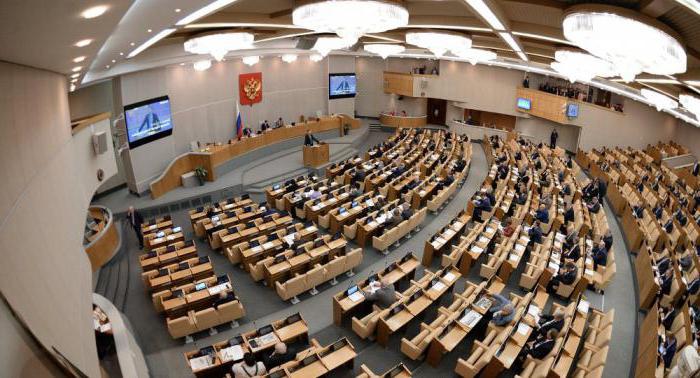The implementation of state activities is always accompanied by the adoption of administrative acts. In this article we will consider the main legal acts of management, the concept and types of them, as well as the characteristics and legal significance in legal practice.
The concept of legal acts
The legal act of management is the power of will of state bodies and their authorized representatives in the form of instructions that are aimed at changing a certain direction of administrative legal relations. Administrative legal acts of management, being unilaterally issued by authorized persons, represent the main form of fulfillment of duties, functions of state activity of the executive branch of government. Such acts differ from official documents (which are nothing more than a simple source of information) because they legally regulate public relations, changing, terminating or endowing the addressee with individual rights and obligations.
All types of legal acts of management are legally binding. This means that failure to comply or gross violation of their provisions is legally punishable. For the entry into force of legal acts, plenipotentiary actions of executors of public administration functions are required in strict accordance with the procedure established for these purposes.

Properties of legal acts
The main types of legal acts of management have the following characteristics:
- By-laws which means that the act is consistent and consistent with the principles of the current legislation of the country, consisting of the Constitution, federal laws, including draft laws of the constituent entities of the Russian Federation, republics, autonomous okrugs and other territorial associations in its composition. Although administrative acts are legally binding, they are not laws. They are developed in accordance with laws and on their basis, and also have the goal of ensuring compliance with the provisions of bills. Thus, the legal force of the law is superior to that for administrative acts.
- One-sided acts distinguishes them from various kinds of agreements in which both parties have rights and obligations. In the case of management acts, one-sidedness consists in the presence of an imperative requirement to comply with standard norms of behavior for unquestioning subordination for a circle of persons. Example: acts of the Government of the Russian Federation in the field of education in the form of decrees determine the rules of conduct for all participants in this field, starting from educational institutions and ending with officials of the education system.
- The legal basis, which can be expressed in the maintenance of general norms and principles of the administrative and legal interaction of entire communities or individual citizens.
- Unquestioning compliance with the provisions of the document by all entities to which it applies, regardless of rank and authority of persons and bodies.

- Published exclusively by executive authorities or other competent subjects of the administrative state structure. Example: acts of the President of the Russian Federation, government, administration of territorial subjects of the Russian Federation, etc.
- The onset of legal consequences (up to imprisonment) in case of non-fulfillment and violation of the requirements of the legal act by persons to whom it applies.
- Officiality which implies that the subject of the executive body acts exclusively on behalf of the state, and not on its own.
The value of legal acts of government in the Russian Federation
In legal proceedings, legal acts of public administration are very significant, because:
- in some cases, they are the legal basis for the adoption of subsequent normative acts by structures lower in the hierarchy; for example, an order from the university’s administration based on an order from the country's ministry of education;
- all types of legal acts of management are an instrument of regulation of legal relations, establishing the same rules of legal interaction for a wide or narrow circle of people;
- act in the form of legal facts establishing the emergence or termination of legal relations; for example, the publication of an order on assuming office by the Minister of Emergencies;
- may be the basis for legal proceedings, and also considered as evidence in the conduct of the process.

Requirements for legal acts and their content
The content of the legal act of management consists of prescriptions that dictate the rules of relations in the field of public administration for persons holding administrative posts, as well as for the relevant structures. Also, the content of these acts may be the fact of establishment (termination) of administrative-legal relations. So, for example, the order on the appointment to the post of Minister of Finance is a legal act of public administration, the content of which is to confer on an official the status of Minister of Finance of the country.
Since administrative acts are an instrument for the performance of state management functions, they must fulfill a number of mandatory requirements, namely:
- Legality, that is, the conformity of the content of the act with the provisions of the basic laws of the country and the existence of legal grounds for its adoption. The adoption procedure and publication of the document should also take place within the framework of the law with the obligatory indication of the necessary details.
- Correctness, which consists in legally and spelling-literate presentation of the content, excluding the ambiguity of its interpretation. The structure of the document must also be observed: chapters, paragraphs and subparagraphs.
- Special requirementsthat are presented to certain types of legal acts of management. In some cases, this means time restrictions for the adoption of the act, the need for coordination and approval by certain officials and structures, registration in the registers.
The procedure for the adoption of administrative acts
The procedure for the adoption of legal acts of management refers to administrative processes and has a rather broad legal base that regulates the latter. In turn, the procedure for adopting acts depends on their type, as well as on the issuing authority, be it the government, president or local government in the Russian Federation, through the relevant executive bodies. Nevertheless, for the adoption procedure for all acts, there are a number of general provisions that consist of the following successive stages:
- Project development - the initial stage of preparation of a regulatory document, carried out by an authorized body or a competent official in accordance with the existing regulatory framework. Moreover, any organization, including local self-government in the Russian Federation, that is, the people, can be the initiator of the project.
- Definition of project contentfollowed by a discussion of the issue that formed its basis, and the search for solutions.If the project is developed collectively, then the decision-making process is accompanied by a mandatory vote, and if by one official, the stage ends with the signing of a normative document.

- Bringing the content of the act of regulatory and administrative act to the circle of performers by publishing it in the media or sending it out individually (if the decision concerns a narrow circle of people). In the second case, acquaintance with the contents of the document is often carried out against receipt.
- Coordination of the project with interested government agencies. Since this stage is intermediate, it may concern non-normative decisions. Most often this stage is passed by acts of local authorities, but, according to practice, a similar algorithm is found in other state structures. For example, when drafting acts related to education, approval of the project with the Ministry of Education and Science is required.
After the entry into force of the regulatory and administrative document, additional decisions may be taken by the authorized body, which makes changes to the content of the project, suspends the validity of the legal act or cancels it altogether. Otherwise, the act is active until the prescribed end of its validity.
Classification of legal acts of management
Studying the varieties of management acts, it should be noted that the criterion of legal content is of the greatest importance. In this regard, the main types of management documents are:
- normative acts;
- individual.
In addition to the legal content, regulatory administrative acts can be grouped according to other criteria, namely:
- by issuing authorities (acts of the government of the Russian Federation, president, etc.);
- by the nature of the competence of the issuing authority (acts general, sectoral, intersectoral);
- on a territorial basis (federal acts, acts of subjects, acts of local governments).

Below we consider all types in more detail.
Legal acts on legal content
Management regulations are the main legal basis for administrative bills. As a rule, they are designed for the long term for a large circle of people. Regulatory acts contain the basic rules of behavior (norms) governing legal relations in the state administration. In addition, they determine the status of structures of the executive branch, establish the procedure for performing state functions, and also delimit the sphere of influence and the official powers of management bodies.
The difference between individual legal acts of public administration from normative ones consists primarily in the fact that they are of an unregulated nature and do not contain norms (standard rules of conduct). These projects operate once, find their application to individual situations and are often addressed to a specific person or circle of people. Thus, individual acts are nothing but a volitional decision of the executive authority (authorized person) related to the occurrence / termination of certain legal relations regarding a particular case. As an example, we can mention the presidential decree on conferring the award and the title of Hero of Russia to a citizen who has committed some valiant act, a feat. 
In practice, there are mixed acts of government. A vivid example is orders issued by ministries that are designed for an indefinite amount of time and are intended for a wide circle of people, but at the same time, specific actions of a particular official are required to fulfill the provisions of this act.
Types of acts on the issuing authority
Administrative acts in Russia are issued by executive bodies of all levels: federal, at the level of constituent entities of the Russian Federation, as well as by the local administration.Thus, the types of management acts by the issuing authorities exist as follows:
- Acts of the President of the Russian Federationincluding decrees and orders.
- Government Acts (orders, decisions).
- Acts of the ministries of the Russian Federation include orders, decrees, instructions, instructions and other normative documents reflecting and regulating legal relations in the industry subordinate to a particular ministry.
- Acts of the head of administration of a federal subject. The governor issues decrees and orders for the performance of managerial functions of the executive branch at the level of the subject of the Russian Federation.
- Acts of the head of the administration body of the federal subject: orders and directions.
- Acts of local administration (decisions, orders, orders).
Types of acts by the nature of the competence of the issuing authorities
According to this criterion, acts are divided into general, sectoral and intersectoral. General administrative acts are adopted by subjects of executive power of general importance, such as the President of the Russian Federation, the government, heads of subjects, republics and autonomous okrugs that are part of Russia.
Industry acts regulate legal relations in the apparatus of state administration at the level of a particular sector of the national economy. These include acts of ministries (Ministry of Internal Affairs, Ministry of Emergencies, Ministry of Foreign Affairs, Ministry of Justice, Ministry of Health, Ministry of Culture, Ministry of Education and Science, etc.), departments, administrations, services, etc. 
Intersectoral acts are issued by bodies of relevant competence, such as the State Committee for Statistics, the Federal Agency for Metrology and Technical Control. These acts must be executed not only by all state structures, regardless of which agency they belong to, but also by all citizens.
Administrative acts depending on territorial affiliation
Based on the territorial characteristic, regulatory acts of management are divided into three groups:
- federal acts, as well as acts of republics and autonomous okrugs within the Russian Federation;
- acts of constituent entities of the Russian Federation, acting within the framework of a certain region, region or district;
- acts of local authorities, that is, bodies of an administrative-territorial unit, which are a city, village, village.